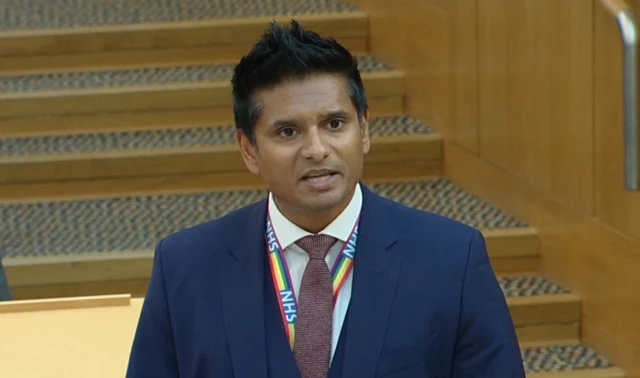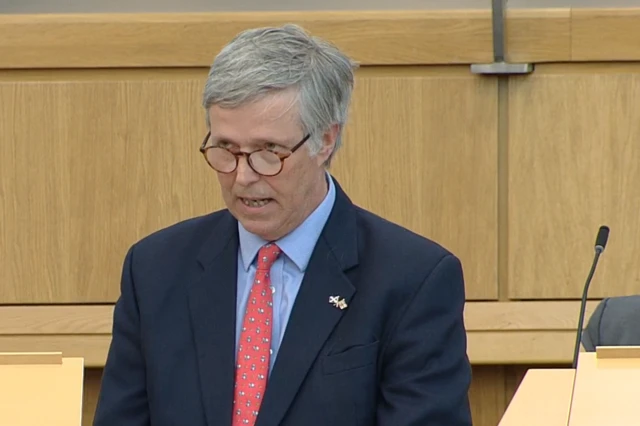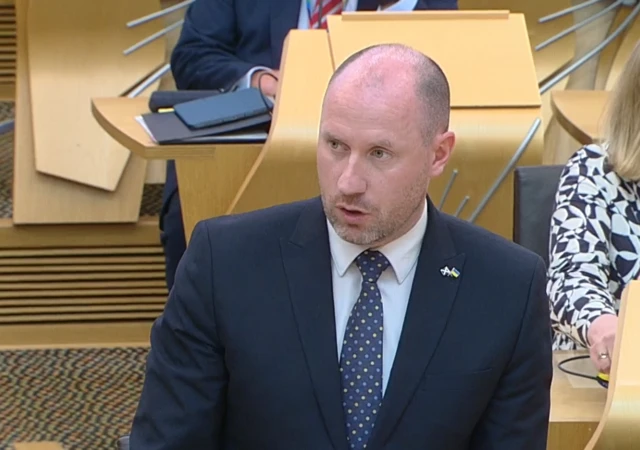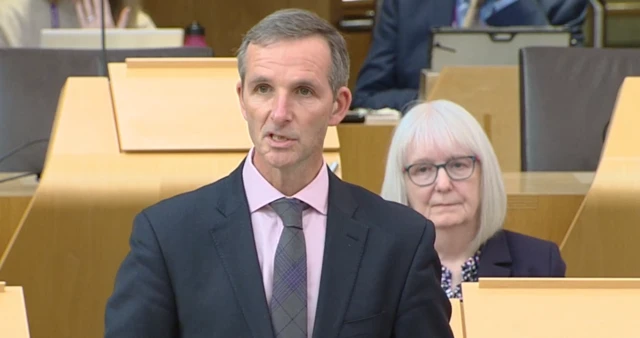Baillie - 'too much about the bill has not been scrutinised'published at 15:39 BST 13 May
Jackie Baillie says the approach of Liam McArthur - who has brought this bill to parliament - has been “exemplary” and that his proposed legislation is more focused than previous attempts.
She mentions receiving a huge amount of correspondence from constituents about the legislation, including several emotional personal stories, such as Michelle Moffat, who appeared on the BBC’s Scotcast programme. These stories “weigh heavily” in decision making, she says.
However, the Labour deputy leader says she worries about the safeguards of the bill. She doesn’t “want anyone to feel they are a burden to their family” or have a “misplaced” sense of duty. She adds she is concerned about the practical implications for the NHS.
There is “too much that has not been scrutinised” she continues, and brings up issues not considered before – such as whether abusive partners could “weaponise” the legislation to use against partners.
More should be done to fund palliative care, she concludes, saying she will vote against the bill.







